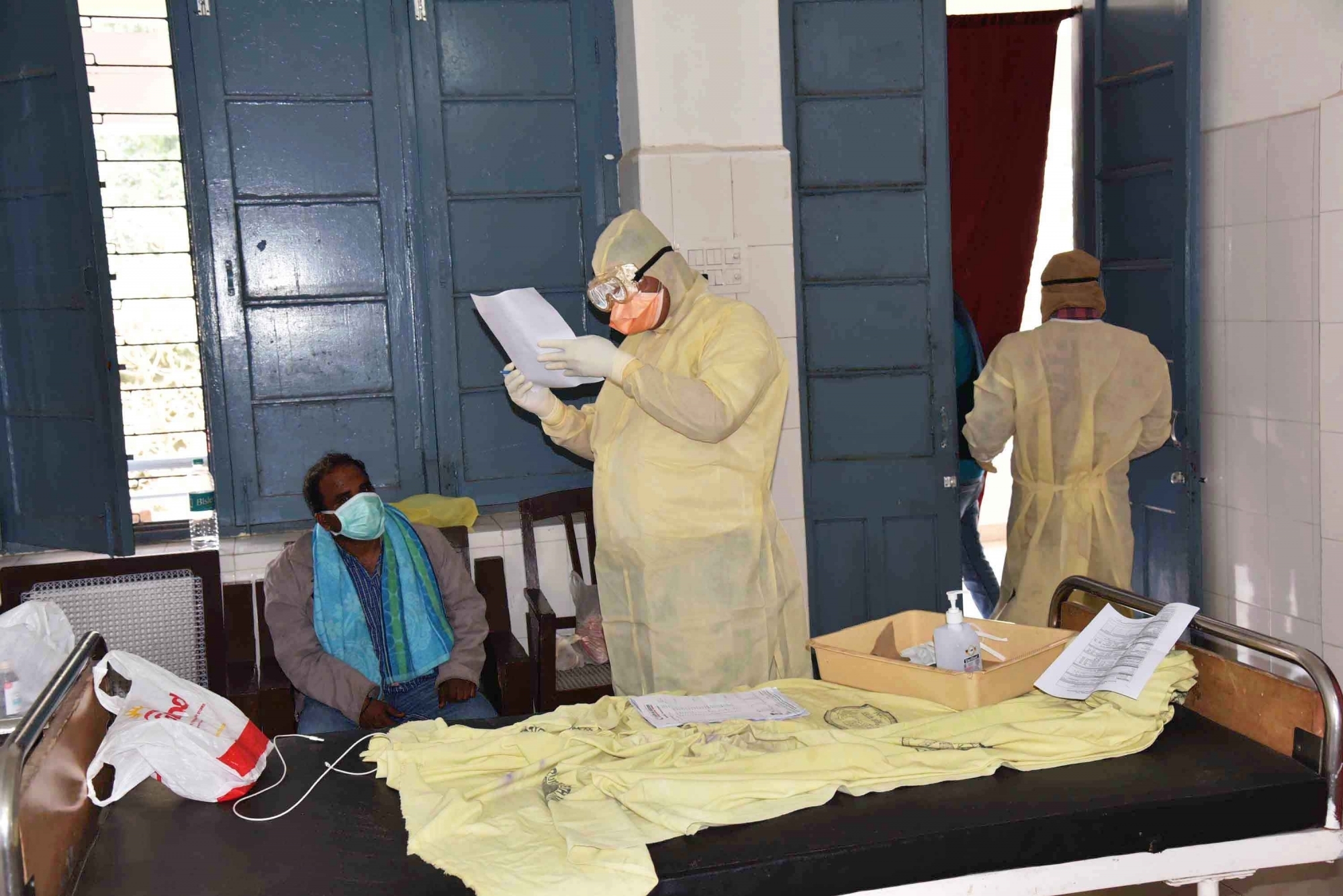If a person is asymptomatic, the viral load is not likely to be very high in the beginning.
New Delhi: The government has decided to follow the strategy of “no indiscriminate testing” policy to contain the Covid-19 outbreak in India. As part of this strategy, there is focus on only symptomatic persons. There is no effort to go for large-scale testing. The idea behind the strategy is that, once symptomatic persons are tested, the entire system goes into a process of enhanced surveillance for them with contact tracing. If a person is asymptomatic, the viral load is not likely to be very high in the beginning. These people can develop the disease within 14 days.
As of now, the government is focusing on the twin strategy of enforcing the lockdown and social distancing and getting the health infrastructure ready to deal with the Covid-19 cases which may come in the days to come.
There is a feeling within the government that the rate of increase in the positive Covid-19 cases has “relatively stabilised” ever since countrywide lockdown started. However, this is an early trend, feel government officials, and any complacency at this stage could prove to be suicidal for India.
Replying to a query of The Sunday Guardian whether the government would go ahead with the “no indiscriminate testing” policy, Joint Secretary (Health), Lav Agarwal, said: “Our approach has been towards breaking the chain of transmission. Let us also not assume that if we take a step today and tomorrow itself we will get the results. Had it been feasible, in other parts of the world, they had lockdown for larger number of days and did not even see the results because they probably started lockdown later.”
“We have been preemptive and graded in our approach. We have anticipated situation
As per figures of the Health Ministry, the total number of confirmed cases has gone up to 873 till Saturday evening (5 pm), of which 775 are active cases and 78 have been cured and discharged, whereas one case was migrated. So far 19 deaths have been reported, as per data available with the Ministry of Health and Family Welfare.
The Centre has said that, as of now, there is no proof of community transmission in the country. The observation is based on an Indian Council of Medical Research (ICMR) study of 2,000 samples collected randomly. This is to be noted that there are four stages of Covid-19.
Stage 1 is imported cases where those who travelled to other countries have contracted the infection. Stage 2 is the local transmission in which people coming in immediate contact of an infected person report infection. Stage 3 is called ‘community transmission’ when a person who has no travel history has contracted through domestic sources. Stage 4 is when a disease is declared an epidemic. The government believes that India continues to be in stage 2 of the localized transmission.
However, the government is treading very cautiously. “Though the number of cases is increasing, we are seeing a relatively stable trend in the rate at which cases are increasing or a little bit of reduction in the rate of increase. Seeing the trend, our action is also increasing. We hope we will be able to check this trend with the lockdown,” Agarwal said. Emphasizing that it was too early to read a clear trend, Agarwal said there is a need to maintain alertness and full adherence of the lockdown, both from government as well as the citizens.
Each ICMR lab has a capacity of testing 90 samples a day. As of now, India is testing 60-70 samples per day in entire network of 51 labs. In addition, 118 laboratories have been included in the ICMR network of Covid-19 testing with a capacity to test 12,000 samples per day. In the last five days, on an average 1338 samples have been tested per day. Additionally, 29 private lab chains have registered with ICMR for Covid-19 testing. They have 16,000 collection centers nationwide. Also, out of 15 kit manufacturers, NIV Pune has approved three PCR based kits and one antibody detection kit. One of these is an Indian manufacturer.
The Council has been closely monitoring the presence of community transmissions in the country. Since 15 February, ICMR has initiated sentinel surveillance to detect community transmission of Covid-19. The surveillance sites have been scaled up from 16 sites till 29 February 29 to 51 sites by 15 March 15. More than 800 samples of the people suffering from severe acute respiratory infection (SARI) /influenza like illnesses have been tested at the sites. None of the samples were found positive. In view of the evolving nature of Covid-19 transmission, the surveillance is being expanded to include more areas especially where Covid-19 cases have been reported.

